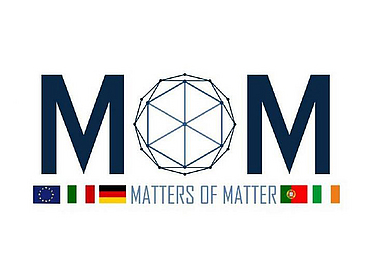A group of 60 pupils between 14-16 years is visiting the University of Bremen on Wednesday, 9 March 2016. The pupils from Germany, Italy, Portugal, and Ireland are interested in natural and engineering sciences. Their schools take part in the Erasmus-plus-program “Matters of Matter – Future Materials in Science Education”, funded by the European Union. In small international groups and supported by their teachers, the pupils work on projects regarding biosensors, “smart houses”, or energy harvesting. An inherent part of the project are the mutual visits to the partner schools, this week the Gymnasium Papenburg hosts their international friends. An excursion to Bremen is part of the one-week program. www.mattersofmatter.eu/
MOM meets MAPEX
At the University of Bremen the group will visit the MAPEX Center for Materials and Processes, a network of scientist within the high-profile research area Materials Science and Production Engineering. Within this network scientists from the fields of mathematics and natural- and engineering sciences are cooperating with external research institutions and international partners.
In small groups, the guests will visit six different establishments of the MAPEX network and present their new knowledge on a poster during a final discussion round.
The innovative potential of steel is the focus of the guided tour in the Stiftung Institut für Werkstofftechnik (IWT). In the Labor für Mikrozerspanung (LFM) they will learn about ultra high-precission machines that make use diamond cutting tools moving with nanometer accuracy in order to produce metals with mirror like surfaces. “How to build an airplane out of plastics?” is the question in the Faserinstitut Bremen (FIBRE), where novel lightweight materials with excellent mechanical properties are tested. The effect of laser radiation on the properties of different materials and their behavior will be explained in the “bias”, Bremer Institut für Angewandte Strahltechnik. Students of the Bremergy team will demonstrate how they build their own racing car every year, making practical use of their theoretic knowledge. In the Institut für Mikrosensoren, - aktoren und –systeme (IMSAS) the pupils will visit the laboratories and workshops used for sensor production.
See also Press release of the University of Bremen here.


